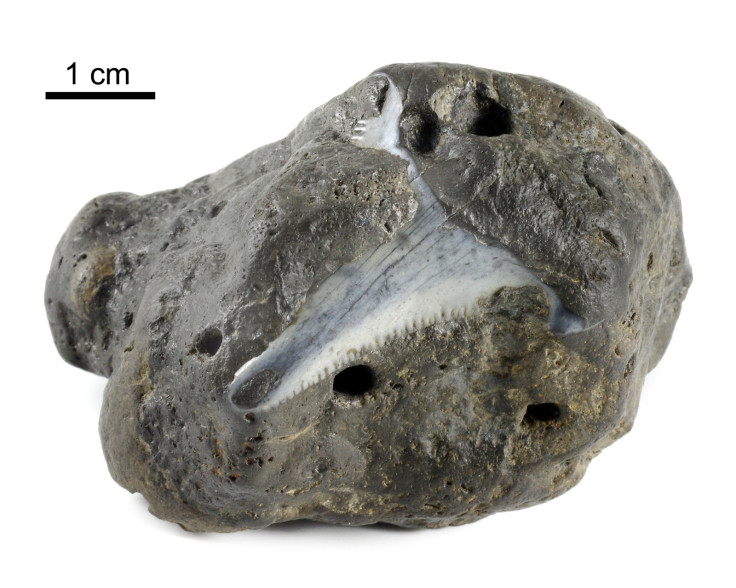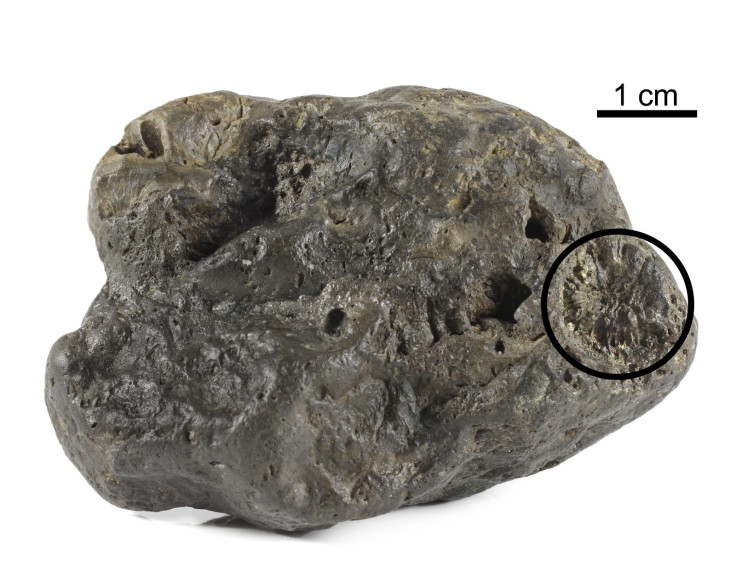20 million-year-old 'poop fossil' shows ancient sharks loved eating crocodile faeces
Not so threatening anymore, right?

There's no accounting for taste, especially when it comes to huge prehistoric sharks. If you're afraid of these great sea predators, just picture them eating a big bowl of crocodile poop.
A 20-million-year-old shark tooth embedded into fossilised crocodile faeces was found in Charleston, South Carolina.
It was discovered by professional scuba diver Mark Stitzer, who was looking for shark teeth by the coast in October 2017. Upon discovery he could tell the stone was special, reports Earth Touch News.
This "poop fossil," which is a "coprolite", the scientific terms for fossilised poop, is embedded with a large shark tooth and bite marks. The fossil is brown, weighs about 85g and carries a big shark tooth right in its middle.
While finding a fossil is extraordinary in itself, this particular coprolite offers some interesting food for thought: Do sharks really like to eat bowel movements?
Samantha Leigh, from the Ecology & Evolutionary Biology Department of the University of California in Irvine, said she didn't know of any modern-day sharks that feast on droppings.
However, she thinks that some sharks could be eating poop by accident.
"There are some sharks that feed on prey items that live primarily on the sea floor," she told Earth Touch News, "So I imagine sharks do (at least incidentally) consume some faeces."
Coprolites are usually quite rare, according to George Frandsen, a US resident who holds the world record for the biggest collection of coprolites and studied Stizer's find. He published his thoughts on the specimen on his website Poozeum.
"The unique hallmarks of this coprolite illustrate that a crocodilian pooped 33 to 22 million years ago, and that a Carcharocles angustidens shark took a bite out of that poop, but did not digest it," he said.
The peculiar coprolite will be on display at the Florida Museum of Natural History from 27 January to 6 May as part of their "Scoop on Poop" exhibition.























